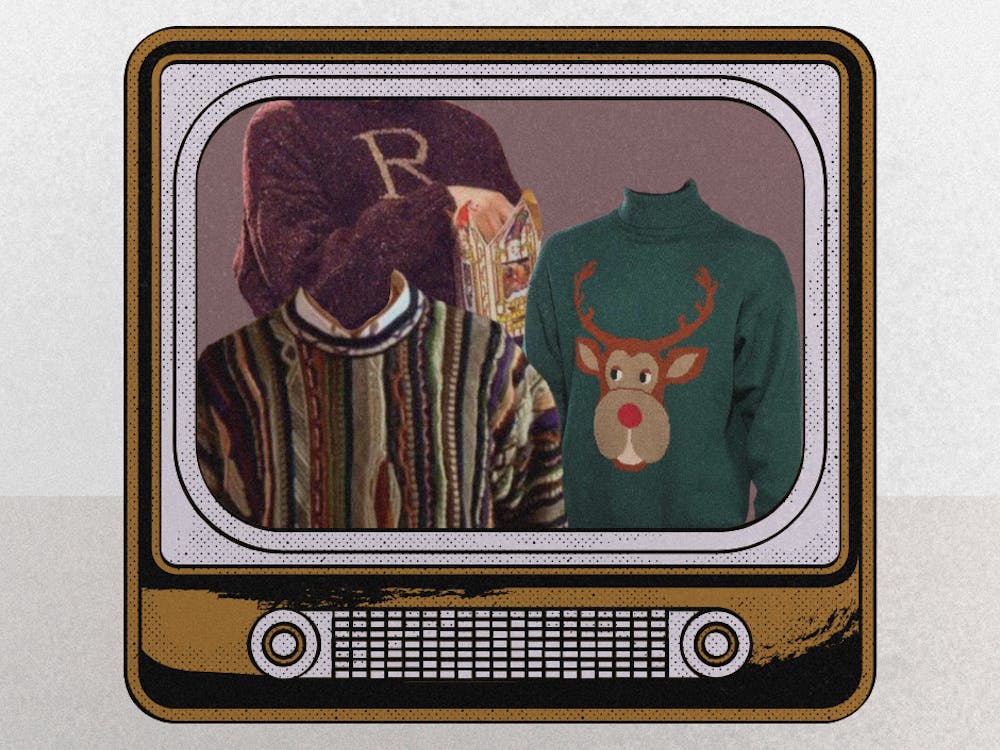Fans craving more from Olivia Rodrigo need not wait any longer — Rodrigo’s sophomore album “GUTS” is finally out and is even more heart-wrenchingly relatable than her revolutionary debut album “SOUR.” “GUTS” is “SOUR”’s angstier older sister with more nuance regarding the growing pains universally faced by teenage girls.
From her first track “all-american b—h,” Rodrigo confronts the contradictory expectations for women in American culture. With “Coca-Cola bottles that [she] only use[s] to curl [her] hair” and “sun in [her] motherf—n’ pocket,” she agonizes over living up to the picture-perfect beauty and unrelenting optimism demanded by American society.
Tension escalates with the strong bass and the swift crescendo-to-subito-piano combo Rodrigo uses in “bad idea right?” Exploring relationships as moments of self-discovery is pivotal to the coming-of-age experience, and Rodrigo deftly captures the turbulent emotions that come with it.
Rodrigo mixes pop rock with soulful ballads, transitioning from the punk rock “bad idea right?” to the lyrical “vampire.” In the “vampire” music video, she regretfully reflects upon vulnerability with the wrong boy while dancing onstage, demonstrating the feeling that her mistakes are on display for everyone to see, a phenomenon known as the “spotlight effect” in adolescent psychology.
“lacy” is another wistful melody in which Rodrigo explores her identity within the context of other women. “Dazzling starlet, Bardot reincarnatе,” Lacy represents the physically ideal woman, especially with a reference to Brigitte Bardot, who was praised as a 1950s-60s sex symbol. Rodrigo “despise[s her] jealous eyes and how hard they fell for [Lacy],” representing all-consuming intimidation bordering intense infatuation as she compares herself to Lacy.
Rodrigo portrays the teenage struggle to fit in with the crowd with retrospective rock, overthinking every social encounter. In the chorus of “ballad of a homeschooled girl”, she calls every day she lives a “social suicide,” revealing the seeming permanence of social follies during adolescence as well as the irony within growing pains by juxtaposing life and death in the teen experience.
As a large public figure, Rodrigo contemplates her self-esteem in “making the bed,” invoking bed-related imagery to represent the fear of responsibility for representing an entire generation of young women. She has been “makin’ the bed,” assuming that responsibility alone every day, but she still feels like a playful child “pull[ing] the sheets over [her] head,” inexperienced and hiding from adulthood.
Rodrigo begins exploring the tumultuous dating culture among present-day teens in “logical” as she grapples with an emotionally manipulative relationship. The relationship has her twisting facts like “two plus two equals five” in order to justify the inconsistencies of their love.
Swapping soulful push-and-pull for angsty pop rock, the next track “get him back!” focuses on the pride politics in modern dating culture. Rodrigo artfully crafts the bridge to reflect the mixed emotions of wanting to get back with an ex just to hurt them the way they hurt her, yearning to “break his heart” then “stitch it up” and “kiss his face… with an uppercut.” She strives to end the relationship on her own terms — with vengeful heartbreak.
Common among young girls is the tendency to blame themselves for relationships gone wrong — and Rodrigo captures this perfectly. In “love is embarrassing,” Rodrigo blames herself for the emotional pain brought on by falling in love with a “loser who’s not worth mentioning.” She asks, “How could I be so stupid?” ashamed of the vulnerability she shared with the wrong person.
With pensive piano melodies reminiscent of her 2021 hit single, “driver’s license,” melancholic ballad “the grudge” leans into one-sided anger after heartbreak. Winning arguments in her head and fantasizing about receiving apologies, Rodrigo vocalizes her desire to regain control in a manipulative relationship.
As “pretty isn’t pretty” begins with hints at self-consciousness and eating disorders, Rodrigo expands upon the stress of modern beauty standards young women face, especially due to the media. The song’s upbeat melody and major key might fool some who fail to look beyond its surface-level appearance — its “poster[s] on the wall” and its “shitty magazines” — but Rodrigo’s painfully heartfelt lyrics highlight the panic of insecurity despite resorting to unhealthy coping mechanisms that promise beauty.
Rodrigo concludes the album with “teenage dream,” a gut wrenching conclusion that encapsulates the pressure of being a young star who is underestimated yet praised for her age. Against the backdrop of soft piano chords and crashing cymbals, Rodrigo repeats that “it gets better,” but worries that she might not, referencing relatable impatience while waiting for progress.
At 20 years old, Rodrigo sophisticatedly contemplates her teen years in retrospect, capturing both internal and external sources of pressure that plague her and many teenage girls. She encapsulates the growing pains of adolescence without specifically mentioning social media, bringing a more universal and timeless sense to her sensational sophomore album. Agonizingly thoughtful and incredibly catchy, Rodrigo has spilled her heart and her “GUTS” so that teenage girls everywhere can feel strong enough to protect theirs.







